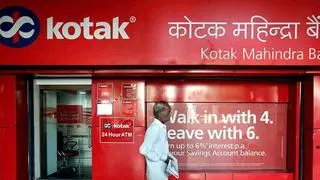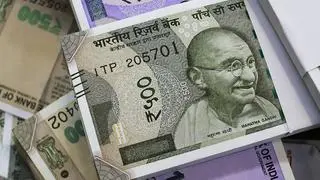The Reserve Bank of India is examining the possibility of recovering the cost of its large investment and operational expenditure in payments systems, regulating interchange and mandating per transaction fee for debit card transactions, and introducing charges on Unified Payments Interface (UPI)-based fund transfer transactions.
The central bank has sought public comments on the aforementioned topics and others in its “Discussion Paper on Charges in Payment Systems”.
The paper noted that as operator, RBI can be justified to recover the cost of its large investment and operational expenditure in RTGS, as it involves expenditure of public money. Further, the charges imposed by RBI in Real Time Gross Settlement (RTGS) are not intended as a means of earning.
“RTGS is a system used mainly for large value transactions and is predominantly used by banks and large institutions / merchants to facilitate real-time settlement. Does such a system, with institutions as members, require RBI to provide free transactions?,” the paper said.
As operator of National Electronic Funds Transfer (NEFT), the central bank has made investments for implementing the infrastructure and operating it. Therefore, though RBI may not be guided by profit motive in operating NEFT, recovery of reasonable cost could be justified, the paper noted.
“Even if such infrastructures are treated as a public good and the larger interest of digitisation of payments is served, should an approach of levying no charges be extended beyond the initial period?,” it said.
The Paper raised the possibility of charges for Immediate Payment Service (IMPS) transactions being regulated by RBI.
Merchant Discount Rate review
Rather than further mandating reduction of MDR (merchant discount rate) for debit card transactions, the Paper said it may be necessary to review the scheme followed by Payment System Operators (PSOs) regarding distribution of the charges among the Payment System Providers (PSPs).
In this regard, two options have been presented -- 1) regulating interchange (the component of MDR payable to the issuer entity by the acquirer) and 2) mandating per transaction fee.
The Paper asked stakeholders if debit card transactions should be charged as normal funds transfer transactions; and whether RuPay cards should be treated differently from other debit cards affiliated to international card networks in terms of MDR.
When it comes to MDR and interchange for credit card transactions, the Paper said as the charges for some credit cards are exorbitant and they do not come down with falling interest rates, there may be a case for MDR for credit card payments to be regulated by RBI.
Yet another point that merits discussion is whether the interchange for credit card transactions needs to be regulated.
UPI
The Paper said UPI as a funds transfer system is like IMPS. Therefore, it could be argued that the charges in UPI need to be similar to charges in IMPS for fund transfer transactions. A tiered charge could be imposed based on the different amount bands.
UPI as a fund transfer system enables real-time movement of funds. UPI as a merchant payment system also facilitates real-time settlement, as against the T+n settlement cycle for card settlements.
However, the settlement among participant banks in UPI is on a deferred net basis. Facilitating this settlement requires the PSO and banks to put in place adequate systems and processes to address the settlement risk. This involves additional costs to the system.
“In any economic activity, including payment systems, there does not seem to be any justification for a free service, unless there is an element of public good and dedication of the infrastructure for the welfare of the nation.
“But who should bear the cost of setting up and operating such an infrastructure, is a moot point...,” according to the Paper..








Comments
Comments have to be in English, and in full sentences. They cannot be abusive or personal. Please abide by our community guidelines for posting your comments.
We have migrated to a new commenting platform. If you are already a registered user of TheHindu Businessline and logged in, you may continue to engage with our articles. If you do not have an account please register and login to post comments. Users can access their older comments by logging into their accounts on Vuukle.